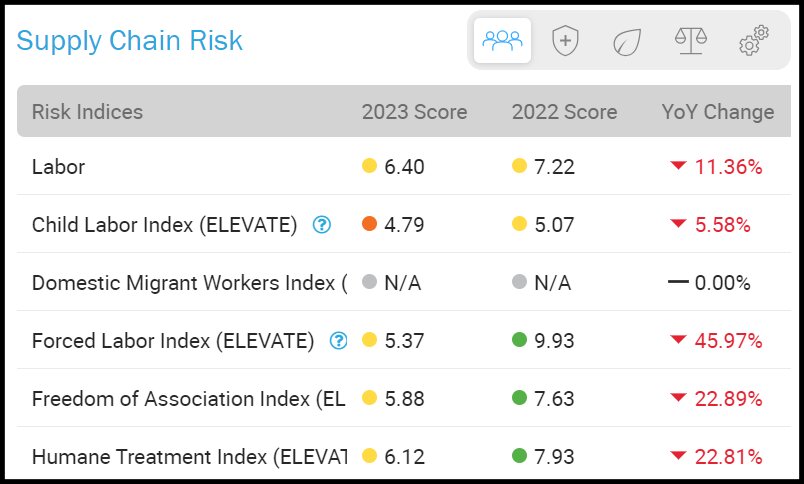New Zealand Next to Impose Modern Slavery Legislation After Sharp Rise in Forced Labor Risk
New Zealand is joining a slew of countries implementing more stringent supply chain due diligence regulations. The country’s government announced in July a new law is being drafted aimed at cracking down on modern slavery.
The announcement comes after New Zealand showed a significant increase in forced labor risk, according to our supply chain ESG ratings, with reports New Zealand consumers are buying a significant number of products suspected to be produced with forced labor.
“World Vision estimates Kiwi households inadvertently pay an average of $34 each week to industries whose products are implicated in modern slavery,” Workplace Relations and Safety Minister Carmel Sepuloni said following the announcement.
Similar regulations across the EU and US have been implemented recently, such as the EU Corporate Sustainability Due Diligence Directive (CSDDD) and Uyghur Forced Labor Prevention Act (UFLP). The development of these laws is impacting responsible sourcing strategies and creating complexities for businesses operating in these regions.
No country is free from the risk of forced labor
New Zealand previously showed low risk in most ESG risk factors, never indicating a high-risk score in any area from our audit data – until now.
Supply chain ESG risk data shows New Zealand’s forced labor risk increased dramatically over the past year, going from low risk to medium risk, with its child labor score rising to high risk. Our due diligence assurance platform EiQ, which produces ESG risk scores for countries based on from-the-ground data and supplemental research, showed New Zealand saw a nearly 50% drop in its forced labor score. This indicates critical violations related to forced labor were uncovered from onsite audits in the country in the last year.

Supply chain ESG risk factors: New Zealand. (Source: EiQ)
While New Zealand’s size and general good reputation do not place its risk on the same level as markets like China or the US, the country’s rise in ESG risk is worth noting. New Zealand plays a key role in global supply chains across several sectors, including agriculture, fisheries, forestry, and mining. New Zealand is renowned for its high-quality agricultural products, particularly dairy products. City-headquartered Fonterra is one of the world’s largest dairy producers. The country is also a major exporter of meat and seafood, wood products, and wine.
What will the new law regulate?
New Zealand’s government says that under the new law, which is still in its draft stages, companies earning more than $20 million a year in revenue would need to report how they tackled exploitation risks in their operations and supply chains.
Workplace relations minister Sepuloni said the law would be among the world’s strongest reporting systems for tackling modern slavery. The legislation is not expected to be introduced to Parliament until late January 2024 and would probably take around three years to go into effect. The law will follow frameworks laid out in the UK and EU free trade agreements. Companies found in violation of not reporting in line with the regulation could face fines ranging from $10,000 to $200,000.
New regulations promote better practice in supply chain ESG risk mitigation, but enforcement of laws is crucial to ensure modern slavery is being tackled and eradicated worldwide. While the government will impose fines for those who violate the law, NZ Modern Slavery Leadership Advisory Group chair Rob Fyfe said it will still be on the consumer to check the register and make their own decisions to continue purchasing from the business.
Find out more about how you can reduce forced labor risk in your supply chain and improve your due diligence assurance: Request an EiQ demo.
About the author